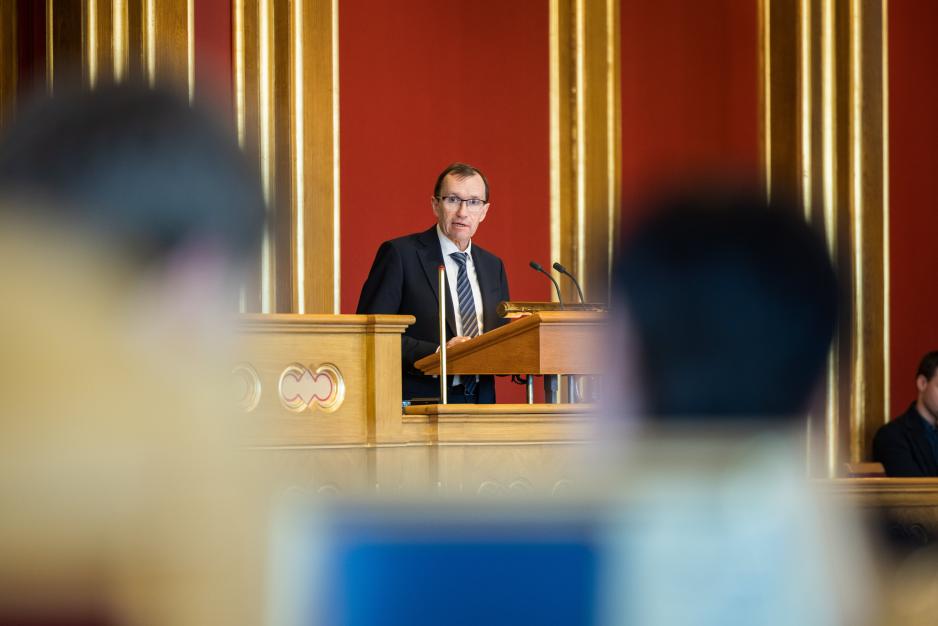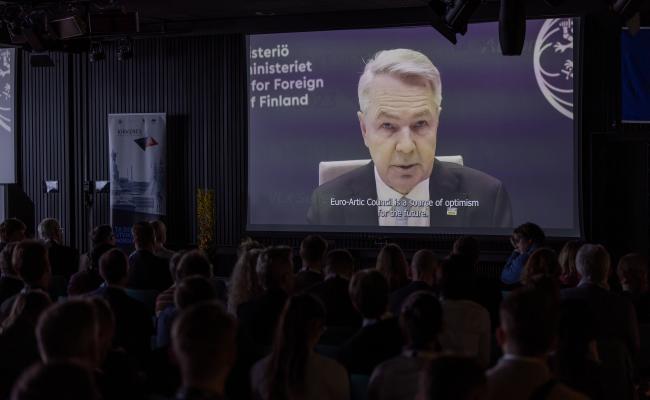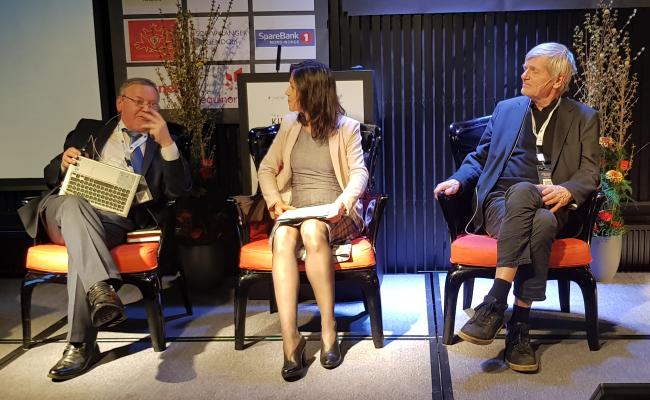Norwegian MFA: "Need for New Thinking Regarding Nordic Cooperation in the North"

"Our foremost objective for the High North is for people to live good lives in a region continuing to be characterized by peace and stability," says Norway's minister of Foreign Affairs, Espen Barth Eide, on the lectern in the Norwegian parliament, the Storting. (Photo: Peter Mydske/the Norwegian Storting)
Going forward, the Barents Euro-Arctic Council, which no longer includes Russia, can serve as a forum for strengthened regional efforts for societal and business development on the Cap of the North, says Norway's MFA Espen Barth Eide.
"We are now looking at how the Barents Euro-Arctic Council can best contribute after Russia left the cooperation," Norway's MFA Espen Barth Eide (Labor) says in his foreign policy statement in the Norwegian parliament on Tuesday.
Moscow withdrew from the council (BEAC) in September. Norway, Finland, and Sweden have shared the chairship since the ministerial meeting in October, in which they confirmed the willingness to drive the Barents cooperation forward.
"The BEAC can play an important role as a forum for strengthened regional efforts for viable communities, the environment, and green business development between Norway, Sweden, and Finland. Our foremost objective for the High North is for people to live good lives in a region continuing to be characterized by peace and stability," maintains Barth Eide and continues:
"To do this, we believe there is a need to think anew about Nordic cooperation in the North. The now united Nordic region in NATO provides new opportunities – not only for the defense sector but also within business, infrastructure, research, and education. The Nordic countries have complementary natural resources, knowledge environments, industrial expertise, and shared values. We have a long and good tradition for pragmatic Nordic cooperation, on which we will continue to build. We are well underway with that."
Endeavors for the Arctic Council's survival
The MFA also highlights the preeminent forum for circumpolar Arctic cooperation:
"The war against Ukraine has had extensive consequences for people in the North, but also for the cooperation in the Arctic Council. Norway took over the council's two-year chairship in May last year. It has become a different chairship from what we envisioned, but concurrently the most important in the council's history."
"The work cannot proceed as normal. Meetings at a political level with Russia are neither desirable nor possible. At the same time, we must do what we can to ensure that this unique organization survives. It is challenging because the council's nature is built on including all Arctic states and unison on how the council is to cooperate."
Barth Eide refers to the eight states' new agreement to resume digital meetings in the Arctic Council's working groups.
"It is important to secure complete inclusion of indigenous peoples as observers. And for us to focus on the council's professional deliveries and our leadership's prioritizations within climate, oceans, people in the North, and sustainable economic development in the North," he states.






